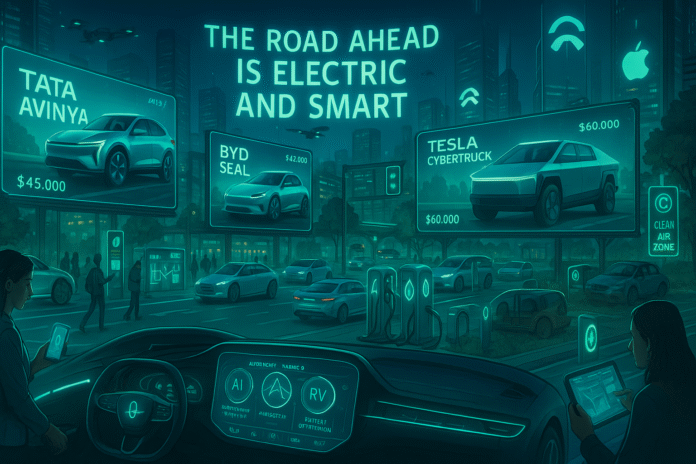1. A New Era of Intelligent and Electric Cars
Electric vehicles (EVs) have gone beyond being cleaner ways to travel. With artificial intelligence (AI) now front and center, they are becoming clever machines that learn about us and for us. While the planet moves toward electric travel, the auto industry is letting AI take the reins. These cars can now talk to each other, adjust to changing conditions, and even guess what we’ll want next. future EV cars When silent, emission-free travel meets smart technology, we are speeding into a future where EVs are not just charged—they are friendly, energy-wise, and getting ready to drive on their own.
2. AI: The Brain Behind Smart Future EV Cars
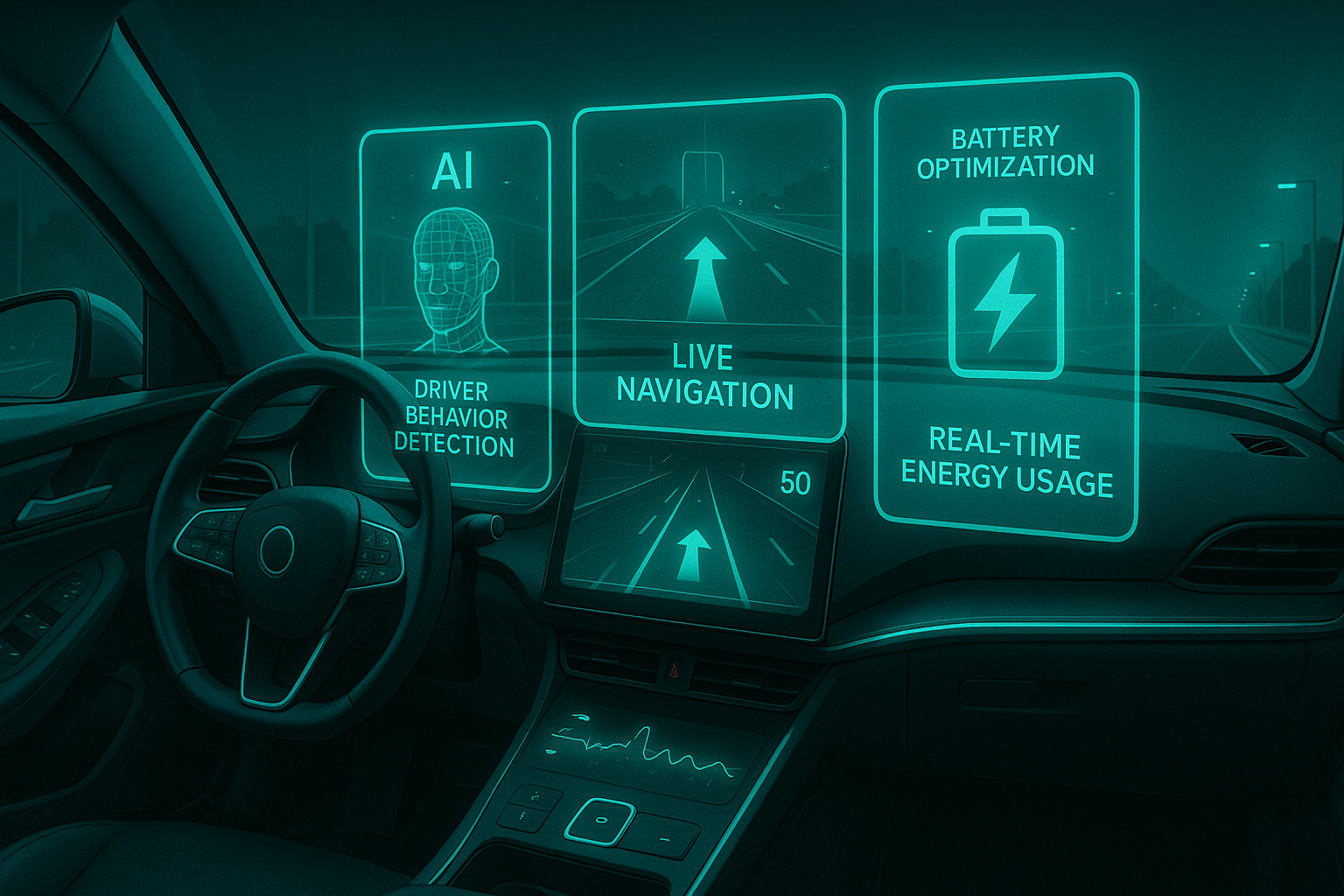
Picture AI as the clever little brain that powers today’s smartest electric cars. It helps them notice other drivers, park themselves perfectly, and find the smoothest, safest route. Advanced Driver Assistance Systems, boosted by AI, now know when you drift from your lane, when a pedestrian is about to cross, and when an object nearby needs a closer look. You can say a single command, and the car will gently steer, brake, and even adjust the air conditioning—all while your hands stay on the wheel. future EV cars Then, as days and miles go by, AI watches how you drive and helps the battery use every bit of energy more wisely.
3. Why EV Cars Are Built for High-Tech Innovation
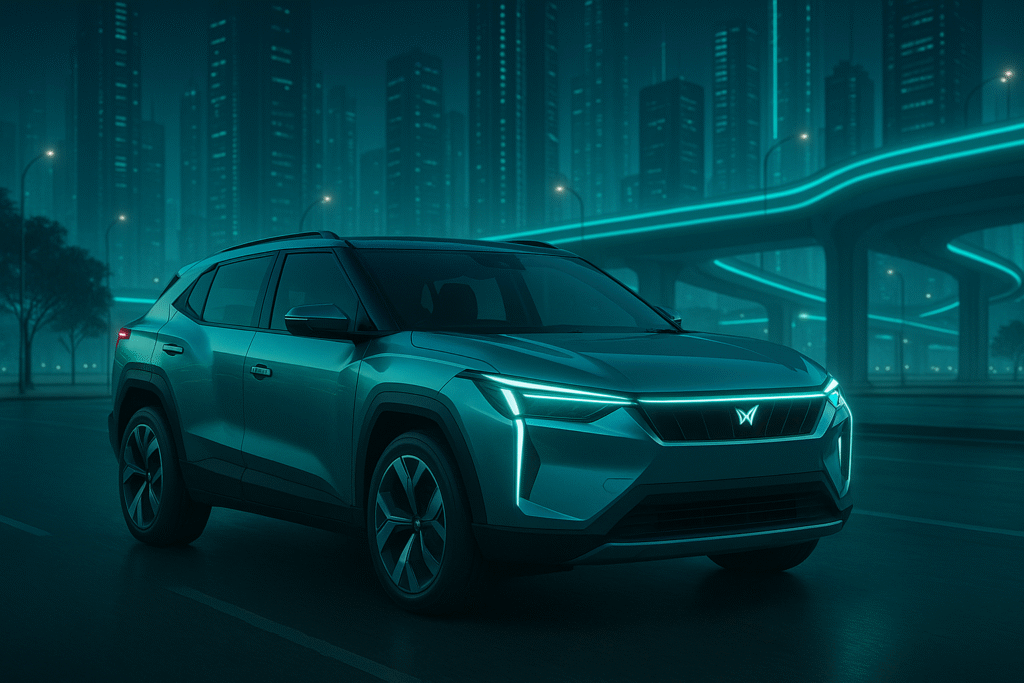
Electric vehicles are leading the smart-car boom, and their design is the big reason why. Unlike gas cars, which have complicated engines and moving parts, EVs are simpler and have more space for tech. future EV cars Lots of EVs now include apps that track your charging, watch over the battery, and download software updates over Wi-Fi. This clean layout makes it easy to plug in new, AI-driven features. With low extra cost and fast rollout, EVs turn out to be the best playground for the newest automotive tech.
4. Self-Driving: When EV Cars Take the Wheel
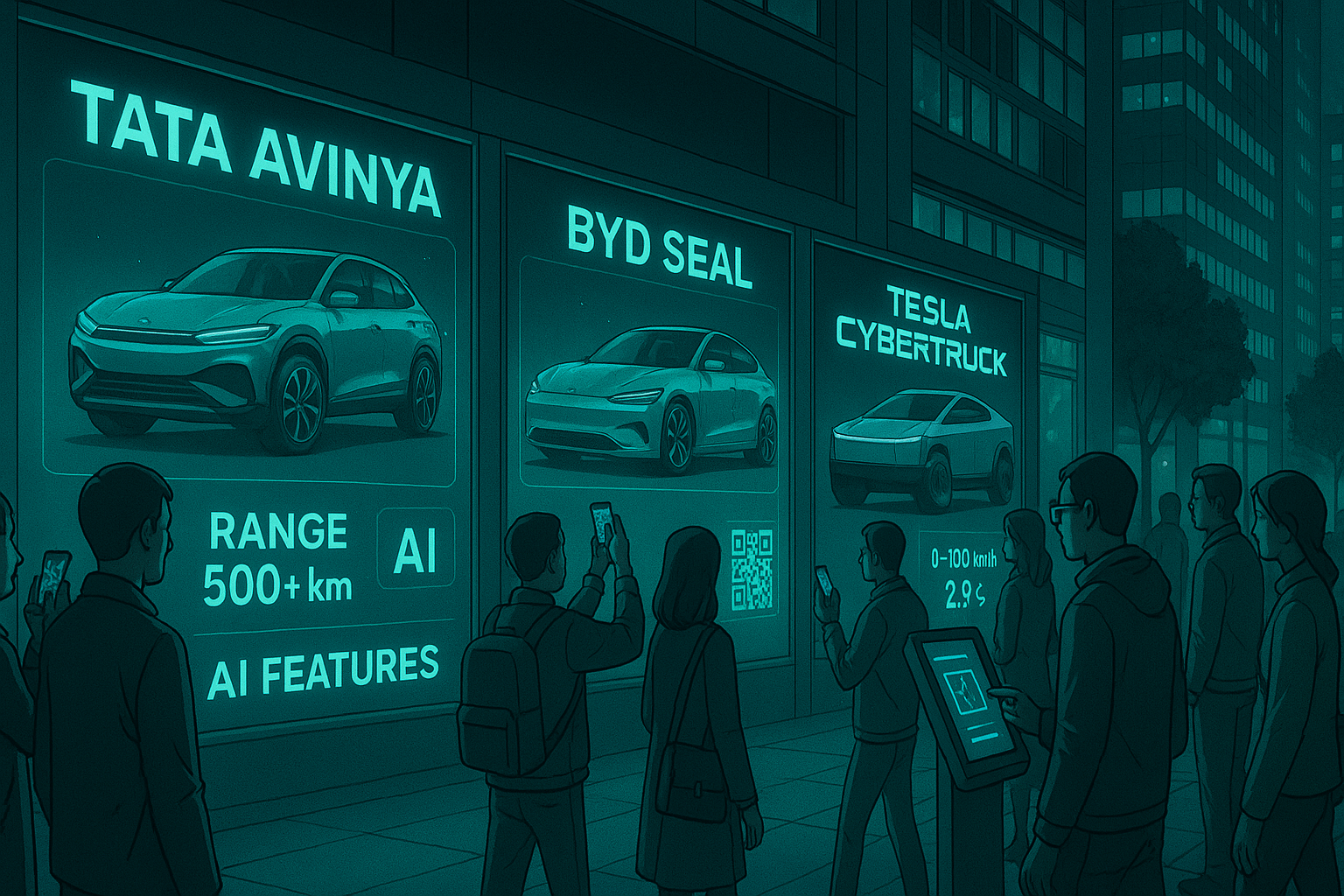
Self-driving vehicles are getting closer, and most of them run on electric power. EVs respond faster and connect to software easier than gas rides, which is why they lead the pack. Cameras, radar, and LiDAR sensors feed data to AI that sees the road, slows down, turns, or speeds up without human input. Tech labs at Tesla, Waymo, and NIO are testing cars that might run all by themselves. future EV cars When electric motors and AI join forces, the result is smoother rides and safer streets on the road to true autonomy.
5. Smart Features for a Better Driving Experience
Today’s electric vehicles (EVs) go beyond smooth rides—they also make every moment behind the wheel better. Picture this: you slide into your car, and it instantly adjusts the seat, queues up your go-to playlist, and finds the quickest way to work without you lifting a finger. You can even use your smartphone to start the car or cool the cabin ahead of time. As you’re on the road, the EV sends you a notification about the nearest charging station the moment it senses your battery getting low. future EV cars These small, smart touches turn driving into a more pleasant, planned, and more enjoyable experience.
List 1: Upcoming Smart EV Cars (India Launch & Specs)
These EV cars are coming soon to the Indian market and offer high performance, fast charging, and AI-powered features.
| Car Name | Expected Price (₹) | Range (KM) | Fast Charging Time | Launch Date |
| Tata Avinya EV | ₹30–35 Lakhs | 500+ km | 30 min (fast charge) | Mid 2025 |
| Mahindra XUV.e8 | ₹25–30 Lakhs | 450–500 km | 35–40 min (80%) | Dec 2025 |
| BYD Seal | ₹40–45 Lakhs | 570 km | 25 min (80%) | Sept 2025 |
| Xiaomi SU7 | ₹40–45 Lakhs | 700 km | 30 min (fast charge) | 2026 |
| Hyundai Ioniq 5 N | ₹65–70 Lakhs | 450–480 km | 18 min (10–80%) | Oct 2025 |
List 2: Global EV Launches with Next-Gen Smart Future Ev cars
These smart EVs are either launched globally or expected soon in India, packed with cutting-edge AI innovations and futuristic designs.
| Car Name | Expected Price (₹) | Range (KM) | Fast Charging Time | Key Smart Features |
| Tesla Cybertruck | ₹80–95 Lakhs | 500–800 km | 30 min (80%) | Autopilot, Smart Summon, OTA Updates |
| Kia EV9 | ₹80–90 Lakhs | 500–600 km | 20–30 min | Face Recognition, Remote Start, AI Routing |
| MG Cyberster | ₹55–60 Lakhs | 520 km | 35 min (80%) | Voice AI, Convertible, Driver Behavior Detection |
| Lucid Air (Expected) | ₹1.2–1.4 Cr | 800+ km | 20–25 min | AI Range Management, Smart Cabin, Lidar-based Drive |
| Apple Car (Rumored) | TBD | 500+ km | Fast charge (est.) | AI-first OS, Seamless iOS Integration, Full Autonomy |
6. Companies Leading the AI-EV Revolution
Leading car companies are fusing artificial intelligence and EV tech to build tomorrow’s rides. Tesla taps AI to keep its Autopilot and Full Self-Driving features up-to-date, using feedback from millions of miles driven. future EV cars Over in China, brands like NIO and XPeng use facial-recognition cameras, alert you if you’re getting sleepy, and boost safety in every model. Lucid Motors and Hyundai are adding AI-guided navigation, seamless entertainment, and smart energy use. And it’s not just auto firms; tech giants like Apple and Xiaomi are also cooking up AI features to change how we think about electric vehicles.
7. Current Challenges for Smart EV Cars
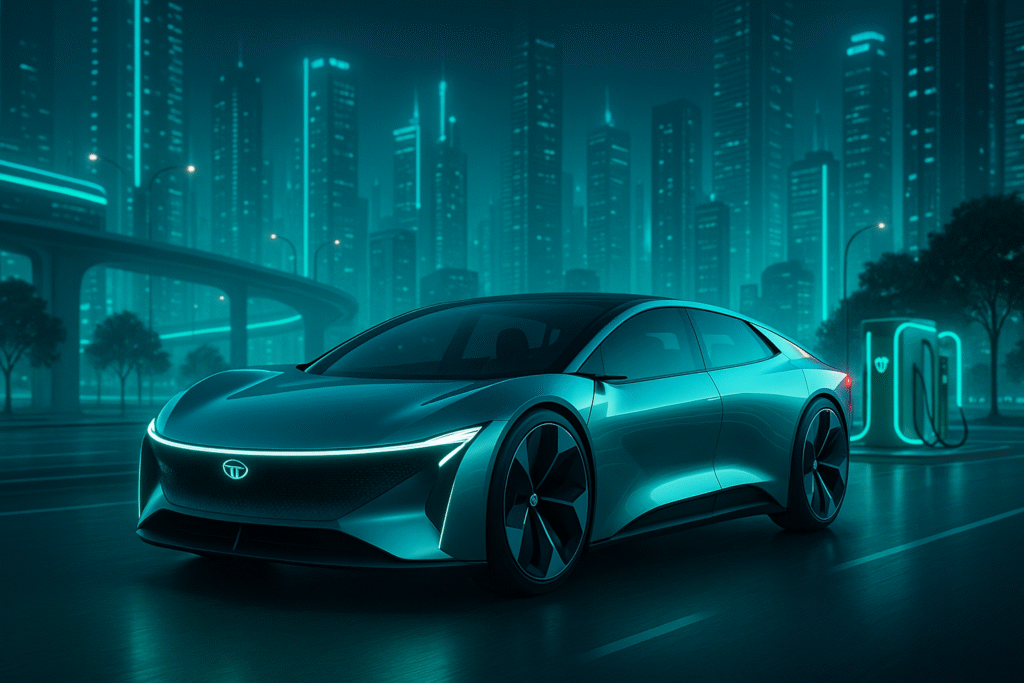
Smart electric vehicles (EVs) are improving on a daily basis, but a few issues are still causing a rattle. future EV cars One of the biggest noise-makers is privacy. These vehicles gather data on where you go and how you drive to offer better services, yet many are now asking how that data is shielded from prying eyes.Next is cybersecurity. When a car is always online, it’s possible for hackers to get in, which makes security teams work overtime. The cost of AI sensors, cameras, and other tech means some cool features are only hitting the high-end trims for now.
Realistic Profits, Losses, and Bans in the EV Transition
While smart EVs offer exciting features, many people wonder: Is it financially worth it? Let’s look at the real-world numbers.
Profits of Owning EV Cars
| Category | Profit |
| Fuel Savings | Save ₹80,000–₹1,00,000 per year on fuel |
| Lower Maintenance | 40–60% fewer costs than ICE cars |
| Govt Incentives | Tax rebates, EV subsidies, toll waivers |
| Remote Upgrades | Free software updates and AI features |
| Eco Benefits | No emissions, higher resale in future cities |
Losses and Risks
| Category | Loss |
| Battery Replacement | ₹3–₹5 lakh after 7–10 years (if needed) |
| Higher Initial Price | 10–20% costlier than petrol/diesel cars |
| Charging Gaps | Limited stations in rural or tier-2 cities |
| Data & Privacy | AI systems collect driving and location data |
Banned Cars and Global Policy Shifts
Governments worldwide are tightening rules on older fuel cars to promote EVs:
🇮🇳 India:
- Delhi NCR: 10-year ban on diesel cars, 15 years for petrol cars.
- Scrappage Policy: Old cars failing fitness tests must be scrapped.
- Cities like Mumbai, Pune, Bengaluru are planning green EV-only zones.
🇪🇺 Europe:
- France (Paris): Diesel cars banned from 2025, petrol by 2030.
- Germany (Stuttgart, Hamburg): Banned older diesels in city centers.
- UK: New petrol/diesel car sales banned after 2035.
🇺🇸 United States:
- California, New York: All new fossil fuel cars banned after 2035.
- San Francisco, Seattle: EV-only clean air zones already active.
If your current vehicle is over 10–15 years old, especially diesel, it may soon be restricted—or lose resale value rapidly.
8. EV Cars and the Future of Smart Cities
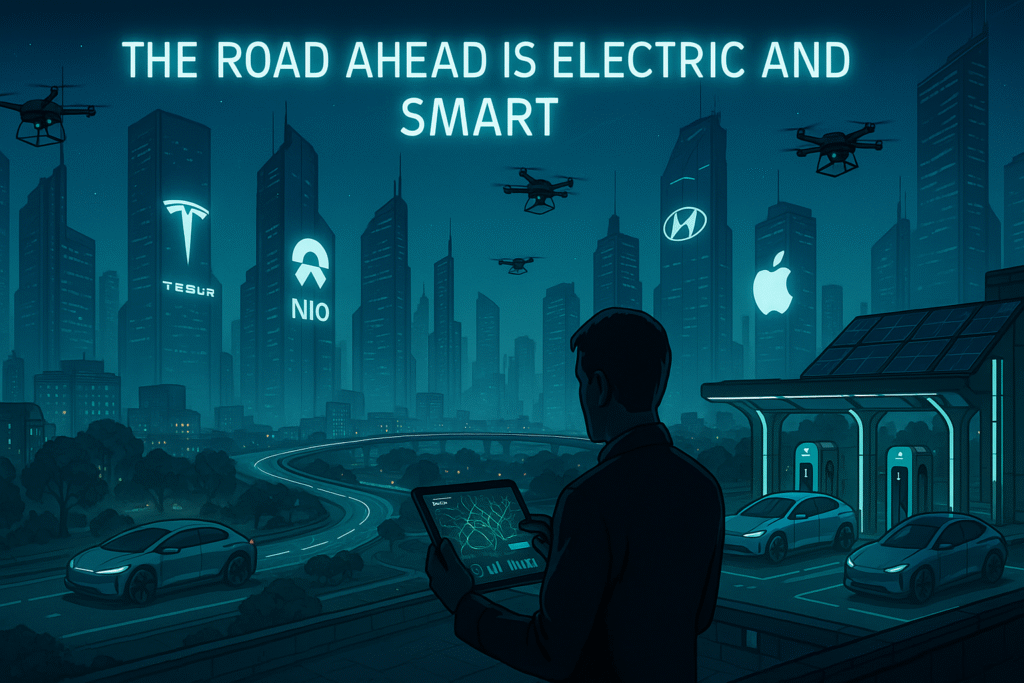
Electric vehicles that run on clean energy are going to power the future cities we will call home. They will chatter nonstop with traffic lights, smart sidewalks, and one another, easing traffic, lowering emissions, and making roads safer. City planners will dive into this anonymous data to design better street layouts and convenient charging spots. Fire trucks, delivery trucks, and buses will coordinate to save time and energy. This is more than neat cars; it is the very foundation of smarter, connected neighborhoods future EV cars.
9. Conclusion: The Road Ahead is Electric and Smart
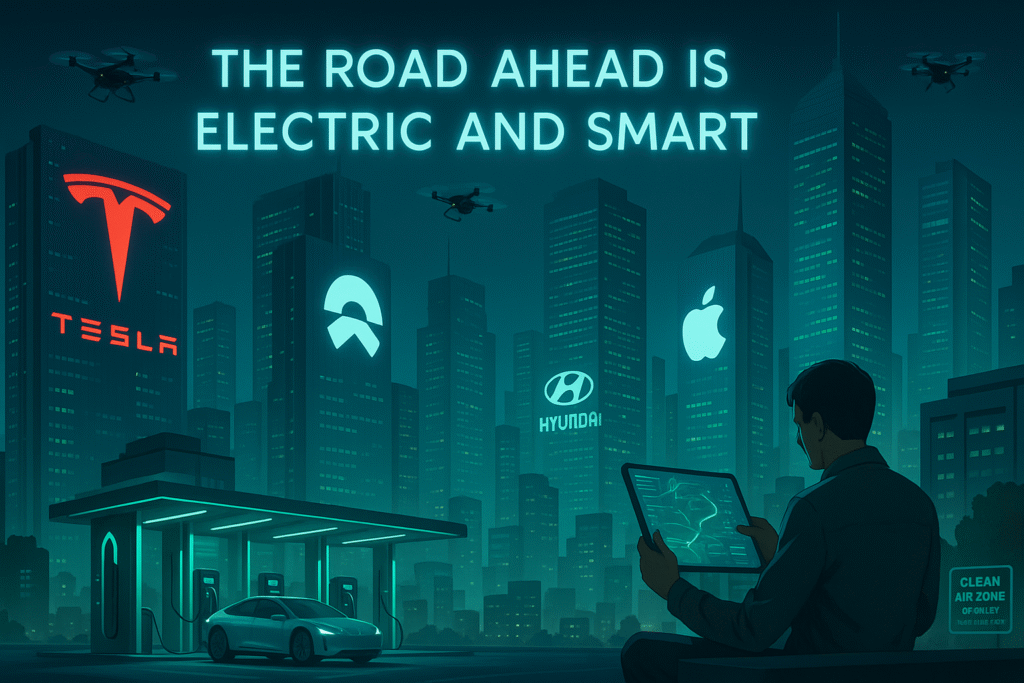
future EV cars By weaving together Artificial Intelligence and electric drive, transportation is on the brink of a friendly revolution. These zero-emission cars are already silent and clean, and with every software upgrade, they grow more aware. They will offer safer journeys, customized settings, and, eventually, fully autonomous options. Whether you love gadgets, care about nature, or simply wonder how we’ll get around one day, the lesson is the same: the next wave of mobility will be electric, extra smart, and eager to ferry us into a greener, brighter tomorrow.
“The future isn’t just electric — it’s intelligent, sustainable, and made for everyone.”


